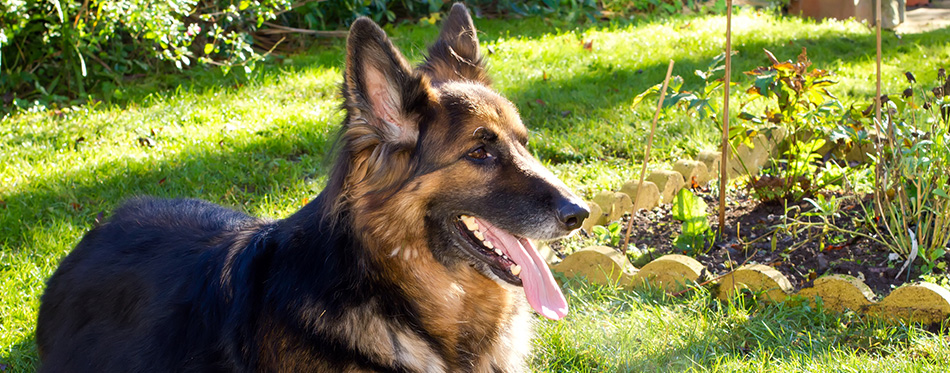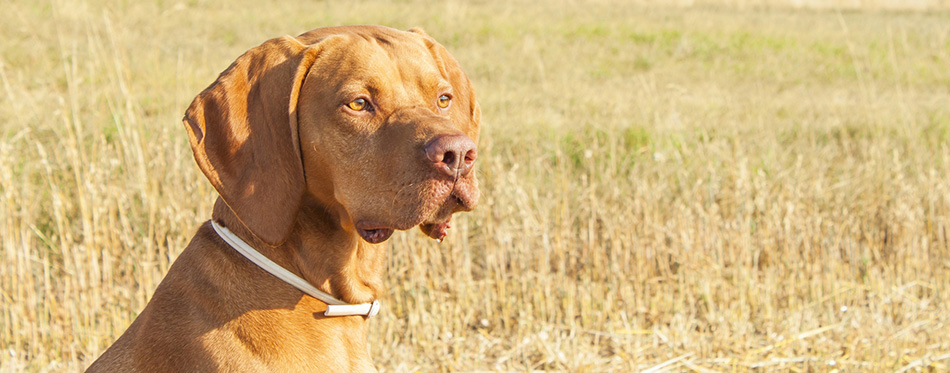Does a wet, cold nose on a dog signify good health? What about a dry doggy nose, does it mean that the pup is sick? A wet, cold nose means a healthy dog; in fact, the moist nose is the underlying reason behind a canine’s extraordinary sense of smell, which is rated as 10,000 – 100,000 times much more powerful than that of humans.
Should dog parents be concerned when their furbabies develop a dry nose? Though it may be a symptom of a serious condition, sometimes, it is usually a canine’s normal reaction to its environment. In other situations, it may have something to do with a dog’s breed or age. Read on to get the details.

Why is My Dog’s Nose Dry?
More often than not, a pup’s dry nose is nothing to worry about. There are some canines that are born with drier nose than others. A dry nose might just be an indication that your furbaby just got up from napping under the sun or close to a heater. It can also mean that it needs to have a drink of water, having experienced slight dehydration.
However, we should note that wet nose works better with canines as they are known to leverage their sense of smell for many things like interpreting their world; besides, scent particles are known to stick better with moist surfaces relative to dry ones. On very hot days, a wet nose cools your four-legged companion down, just in the same way that panting regulates its body temperature.
What’s more, the moistness emanates from the lining of the canine’s nose, which is equipped with unique mucus-producing glands that functions to keep the nasal passageways damp. The glands also produce some clear watery fluids that cool the pup down. Moreover, dogs are also known to clean their noses by licking them regularly.
Additionally, constant sniffing can give rise to pollen and dirt collection around your fur buddy’s nostrils, and the regular licking has two benefits – it keeps the pup’s nose wet, and helps it in the interpretation of smell through taste. This is all thanks to the Jacobson’s organ – an exceedingly specialized olfactory organ. There are still some situations where a dog’s dry nose can be as a result of some side effect emanating from certain medical problems. These are explained below;
Illnesses or Conditions that Can Cause a Dry Nose in Dogs
Allergies: Just like humans, dogs are prone to allergies, and one of the major symptoms of allergic reactions in the canine population is a dry nose. Consult your vet on determining the root cause of the allergy. After examining, your vet can prescribe some dog dry nose treatment to give your pup some relief.
Sunburn: Sometimes, your dog’s dry nose may come from sunburn. There are breeds that are known to be highly prone to sunburn. This might include those that come with pale or pink noses and eyelids, even the ones born with thin coats are also susceptible. However, there is no guarantee that the breeds with thick coats are immune. The dry nose is more prevalent during the summer months, a dog nose balm or sunscreen can come in handy as a dog dry nose remedy. For a wider selection of choices, check out our dog sunscreen guide.
Dehydration: Dehydration can come from arduous exercise, especially during the scorching weather of the summer seasons. Ensure that your furry friend has plenty of fresh cool water within reach. Take a look at our review of dog water bottles for more options.
Auto-immune disease: Some dry-nose conditions in dogs have been diagnosed as a symptom of some auto-immune diseases like pemphigus and discoid lupus erythematosus – these can make your pooch’s nose to crust, dry out, or crack. However, it shouldn’t be your first consideration when you notice dryness in your furbaby’s nose.
Inability to lick their nose: It may be that your pup is experiencing difficulty with licking its nose. This is common in Brachycephalic breeds such as Bulldogs and Pugs. The reason for this is that these dogs have relatively short snouts. In the same vein, breeds like Lhasa Apsos and Poodles are susceptible to blocked tears ducts, which is also capable of drying the nose out.
What to Put on a Dog’s Dry Nose (Treatment)
Most of the time, a doggy dry nose is just simply a dry nose. If the condition is the chronic kind and the vet has no cause to suspect any diseases or allergies, he/she may prescribe a balm or lotion – these lotions are specially designed to nourish as well as hydrate the skin on the pup’s nose. Besides, since dogs tend to lick their noses, whatever balm you use should be something safe for consumption.
Some dog parents buy their pup’s skin lotion from across the counter, but these are not safe, especially with regards to ingestion. Recommendations are that you avoid any over-the-counter balm or lotion, except in a situation where it is recommended by the vet. Once you observe any changes in the appearance of the skin on your pup’s nose, consult the vet for diagnosis and subsequent treatment.

My Dog Has a Dry Nose: Is it Painful Or Uncomfortable?
When a dry nose condition is chronic, it can be rather unpleasant for your four-legged buddy. However, this depends on the root cause of the dryness. We have observed some health conditions that can result in extremely dry and cracked nose in dogs, that can be quite painful. This is comparable to a human who is experiencing raw or cracked skin from sunburn and other dermatologic diseases.
Some dry nose conditions are known to result in crusting or nasal discharge, which is equally uncomfortable. When your pooch releases more gunk than usual, the sniffles may be as a result of conditions like tumor, infection, or even allergies.
The importance of taking your pet for examination by a professional cannot be overemphasized, especially when you observe changes in the pet’s behavior or appearance. Remember, your dog’s nose is its key sensory source of information, and it is your job to keep it in tip-top working order.

